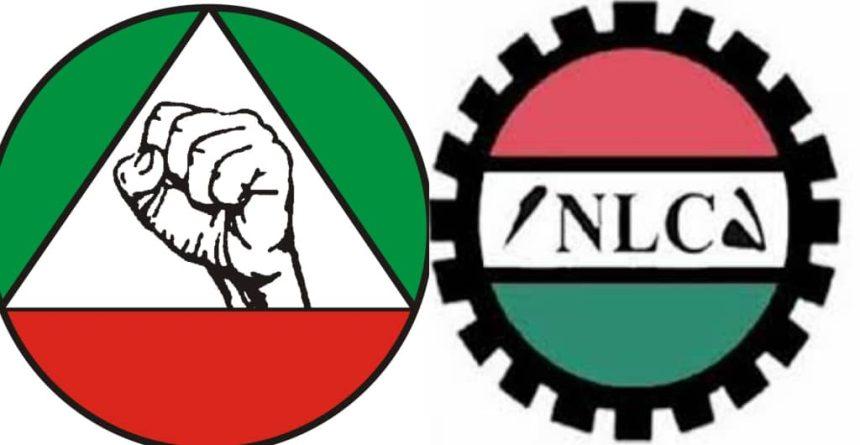… Don’t Lose Hope, HDAN Tells Workers
International Workers’ Day, celebrated on May 1st, holds significant importance globally as a day to honor the contributions and achievements of workers.
As Nigeria joins her counterparts to mark the day, it’s important to reflect on the challenges facing the backbone of the nation’s economy: its workforce. Among the myriad issues confronting Nigerian workers, access to affordable housing stands out as a critical concern.
For many Nigerian workers, the dream of owning a decent home remains elusive. High housing costs, limited access to financing, and inadequate housing stock plague both urban and rural areas. Workers often find themselves living in overcrowded and substandard accommodations, far from their workplaces, leading to long commutes and compromised quality of life. The housing crisis not only affects individual workers but also impacts productivity and economic growth.
READ ALSO: DSS Urges Labour to Postpone Planned Protest Amid Hardship
Despite efforts by past and present governments both at the states and federal government levels, to address the issue of affordable housing for workers, the situation remains challenging.
The Federal Government of Nigeria launched several initiatives and created institutions such as the Federal Mortgage Bank of Nigeria (FMBN), National Housing Fund (NHF) and various housing schemes like the Federal Integrated Staff Housing (FISH) program.

However, the impact of these initiatives has been limited due to challenges such as corruption, bureaucratic red tape, and inadequate funding.
The NHF, established in 1992, was designed to facilitate the provision of affordable housing finance to Nigerian workers. However overtime this has not been the case, as the years have witnessed a deviation from the idea of the scheme.
In August 2023, The Nigeria Labour Congress (NLC) had raised concerns over the non-remittance of deductions by the Federal Mortgage Bank of Nigeria (FMBN). NLC President, Joe Ajaero, threatened to withdraw workers from the NHF contributory scheme due to what he termed FMBN’s failure to manage the funds accumulated for contributors.
With the lack of transparency in the scheme, The House of Representatives adhoc committee, tasked with investigating non-remittances to the National Housing Fund and fund underutilization, had summoned the Accountant-General of the Federation (AGF), Mrs. Oluwatoyin Sakirat Madein, to clarify why deducted funds from workers’ salaries weren’t remitted. However, the AGF failed to appear, raising concerns over accountability and transparency in the management of worker contributions to housing initiatives.
The Federal Mortgage Bank of Nigeria, led by former Managing Director and CEO Hamman Madu, revealed to the committee that the Integrated Personal Payroll Information System (IPPIS) had failed to remit N26.6 billion of workers’ contributory funds over a two-year period.
“From January to December 2022, N11.587 billion was not remitted as backlog payments for MDAs from IPPIS, while N3.356 billion was not remitted from April to July 2021 as outstanding failed payments for 2021 from IPPIS,” he said.
Another instance highlighting the systemic problem is the call by workers who unanimously demanded a review of the National Housing Fund due to the alleged cumbersome processes of obtaining housing loans from the scheme.
Oladipo Arowosegbe, a staff member at the National Industrial Court in Akure, expressed frustration over eight years of monthly salary deductions for the NHF scheme without receiving any housing benefits. Despite filling out forms with hopes of benefiting from the scheme, he has not received updates or feedback, highlighting a disconnect between deductions and actual housing benefits for contributors.
In 2022, the Housing Development Advocacy Network (HDAN) leveled accusations against the federal government, alleging that it had siphoned off 40 percent of the National Housing Fund. Festus Adebayo, the Executive Director of HDAN, highlighted the plight of workers who, after dedicating 20-30 years of service, were unable to access the benefits from this fund.
“…It is not for the government to borrow it or take it because the purpose of that money is so serious and the people that are contributing to it who really need the help of the government are now suffering. You can’t take from people who need help from you” Adebayo noted.
As Nigerian workers commemorate 2024 International Workers’ Day, HDAN stands in solidarity with them and are committed to promoting homeownership despite the economic challenges bedeviling the nation.
The group urges workers to remain steadfast, reminding them that there will be light at the end of the tunnel.
Amidst the challenges faced by Nigerian workers in accessing affordable housing, there emerges a glimmer of hope. The establishment of an independent housing ministry signals a renewed focus on addressing the housing needs of Nigerians, including the workforce, with the minister of housing and urban development, Arch. Ahmed Dangiwa displaying a strong commitment to this cause. Moreover, the minister has taken proactive steps by creating task teams tasked with developing a robust framework to ensure that housing agencies and schemes under the ministry’s supervision are optimized to deliver effectively on housing needs.
Furthermore, the Federal Mortgage Bank of Nigeria (FMBN), under the leadership of Managing Director Shehu Osidi, has reaffirmed its dedication to fulfilling its mandate of providing affordable mortgage financing.
READ ALSO: Seoul to provide housing subsidy to married couples with newborns
However, HDAN believes recapitalization should be a top priority as it will help the FMBN to secure additional funds for housing delivery in the country. On the other hand, the association believes digitization of the the process and also review of some laws affecting the development of the institution.
While the focus often remains on federal government initiatives, several state governments, including Lagos, Enugu, Plateau, and Ekiti, have shown commitment to tackling the housing challenges confronting workers. However, broader participation from additional states is essential to prioritize housing solutions for workers nationwide.
Way Forward
Despite differing opinions, one fact remains paramount: the imperative to provide adequate and functional shelter for the Nigerian workforce.
Addressing the housing crisis for Nigerian workers requires a collaborative approach involving the government, private sector, and civil society.
Addressing corruption is essential to solving the worker housing crisis in Nigeria as it directly impacts the effectiveness and transparency of housing initiatives and institutions. Corruption has often led to mismanagement of funds earmarked for housing projects, diversion of resources meant for affordable housing schemes, and manipulation of allocation processes, all of which have worsened the housing crisis for workers in Nigeria. By tackling corruption, the government can ensure that funds allocated for housing are used efficiently and effectively, thereby increasing the availability of affordable housing options for Nigerian workers.
Other key strategies include prioritizing investment in affordable housing projects tailored for workers, reducing construction costs, and providing affordable financing. Land reform efforts are crucial to unlock land for housing development, curb speculation, and ensure equitable access. Public-private partnerships can leverage resources and expertise to develop affordable housing, improve infrastructure, and enhance housing by finance mechanisms, ultimately providing sustainable solutions to the housing needs of Nigerian workers.


